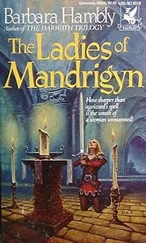But when the officers barked out orders to form up columns, Sophie turned away.
Fairfax County, Virginia
Thursday, August 25, 1814
1:00 A.M.
From the upper windows of a house called Rokeby, Dolley watched Washington City burn.
Though it lay some ten miles off, she could see the red reflection against the underside of roiling clouds of smoke. The trees around the house tossed and fretted as the winds strengthened. The sky smelled of storm, and of smoke.
Dolley felt very, very tired.
Jemmy at least was safe. Or at least he had been safe four hours ago, when he and his little band of friends had caught up with her carriage on the river road. The team’s pace had slowed to a crawl, the way blocked by carts, carriages, wheelbarrows, and dead-tired trudging militia, mostly invisible in the suffocating darkness. Like themselves, everyone in Georgetown had realized that the British would sweep through the city.
Somewhere ahead of them was a family with a wailing baby. Its cries wrenched Dolley’s heart. Was there no one there to comfort it? Then Sukey had called down from the box, “Riders comin’ behind us, ma’am!” and the next instant, it seemed, lantern-light flashed in the window of the carriage and old Mr. Carroll’s voice called out, “Mrs. Madison?”
And a moment later, Jemmy’s, unmistakable, “Dolley?”
The drivers behind them cursed as Joe reined the team over. Men and women jostled past with barrows and bundles, sparing barely a glance as the tall buxom black-haired woman nearly fell out of the carriage into the arms of the dust-covered little man.
For a time Dolley knew nothing and cared less, only the grip of Jemmy’s arms around her and the taste of his mouth on hers. Dear God, he’s alive! Dear, dear God, Thou has spared him….
“Move along there!” groused someone behind them whose wagon couldn’t pass on the narrow road. “We ain’t got all night here!” and another voice added, “Kiss ’er in the carriage, pilgrim!”
“Shut up, Matt, let ’em kiss!” retorted a woman’s voice. “Catch me kissin’ you, if you was lost.”
“I can’t stay.” Jemmy’s hands gripped her shoulders as he spoke, as if convincing himself against all odds that they were together, both alive, both unhurt. “We’ve heard the men are regrouping in Fairfax County—perhaps at Wren’s Tavern, or near there. They say that’s where Monroe has gone.”
“Where shall we meet, then?” asked Dolley.
“Salona. If I don’t reach there tonight, or can’t reach there, meet me tomorrow night at Wiley’s Tavern near Little Falls. I should at least know by then what is being done, by way of counterattack.”
“All right.” He looked ready to drop, but there was no time for more, and Dolley only drew him to her again in fierce embrace, whispered, “God go with thee.”
“And thee.” He cupped her face in his hands, kissed her again, hard. “We’ll come through this, Doll. And come through victorious.”
It was only after he’d ridden away, that Carroll mentioned that Sophie Hallam had been present when Salona had been decided upon as their meeting-place.
Rokeby House lay about a mile from Salona, and from it Dolley hoped to be able to watch the road. The house was crammed already with other refugees, mostly people she’d met at receptions and parties over fourteen years in Washington City. Her very young hostess, Mrs. Love, offered her her own bedroom for the night, and would have found floor-space for herself in one of the already innlike guest-rooms had not Dolley forbidden her to even think of such a thing.
Mrs. Love—Tilly, a connection of Jemmy’s by marriage (wasn’t everyone in Virginia?) who’d been a child in the schoolroom when Dolley first came to the Federal City—slept now on the bedroom day-bed she’d had made up, her pet gray cat in her arms like a doll. Her blond braids hung out from under the makeshift tent of mosquito-netting in the glow of the single candle. The big house had fallen silent an hour ago, save for the restless rushing of the trees outside, like the sound of the sea in the darkness. Even the noises of fugitives on the river road had ceased.
The smell of rain and lightning rode like a seraph on the night.
And what now?
Even with her spyglass, Dolley couldn’t see much more of the fires than the red flash of flames, but it seemed to her that they were confined to several wide-separated localities. At least, she thought, no matter how hard the wind blew, flames from one house wouldn’t automatically ignite a whole neighborhood, as they would in Philadelphia. She had to smile a little at that, thinking of how everyone but herself had moaned and wailed about Washington City’s endless distances and scattered houses. If they wished to torch the city, the British would have to do it house by house.
Her own house, she knew, was one of those in flames. She saw the dining-room again in her mind, all dressed in its white and silver as it had been on those evenings when Jefferson had sent her a hasty note begging her to come and preside at his dinner, as there would be other ladies present.
Even for a philosopher who considered etiquette a worthless nuisance, there were limits.
The thought brought others. She turned to her reticule in quest of her snuffbox, and recalled again she’d left it in the desk-drawer, and with it the Queen’s golden mirror. So it was destined to vanish after all, she thought, and felt the stab of grief for what could not be retrieved. For some moments it was as if she’d lost Martha again, and all those vanished days, those years of joy and trial, with her.
Burned to ashes, as Sophie’s early years had been burned, leaving only stony irony and revenge.
Weeping, strangely enough, made her feel better. Maybe I just hunger for snuff. After a few minutes she raised the spyglass again, turned it toward the road. Though the night was pitch-black, she’d been aware that more than refugees prowled the darkness. Twice, since the flow of fugitives had slacked, she’d seen torchlight, and forms moving among the trees. American stragglers or British, she didn’t know.
Waiting to ambush Jemmy, as he rode to Salona, thinking to join her?
But when she thought of Sophie, and of the roving bands of British soldiers, she pushed her doubts aside and breathed a prayer for the safety of her friend. It was said that British stragglers had stripped the countryside between their landing-point at Benedict and the city itself. The half-dozen men and boys in the house, including her host, were grouped in the downstairs hall, but in the event of a determined incursion by the enemy their collection of dueling-pistols and hunting-arms could only serve to trigger deadly violence.
Sooner than that, she thought, as torches and lanterns began to gather again on the road beyond the trees, I will give myself up. The thought turned her sick with dread.
Even flight out the back door and into the surrounding woods might not serve to save her hosts or their dwelling. And in the woods would be looters, and runaway slaves.
She strained her eyes at the glass, to penetrate the wild darkness. On the road she could only guess at a confusion of movement, but it seemed to her there was a large force there. The roaring of the trees carried away any sound. For interminable minutes Dolley watched, heart pounding, before the flickering spots of fire retreated back into the darkness, in the direction from which they’d come.
A single speck of flame detached itself from the woods. Bobbed through the wind-whirled blackness toward the house.
Dolley took a deep breath, and went downstairs.
Joe the coachman was just opening the front door when Dolley reached the hall. Sophie Hallam stood on the threshold with a lantern in her hand. “Who was that?” Dolley asked, breathless, and Sophie replied with a shrug, “Merely some gentlemen who’d missed their way. I sent them back toward Georgetown.” Sophie’s eyes met Dolley’s for a silent moment, tired and bitterly sad. Then Dolley stepped forward and took her in her arms.
Читать дальше





